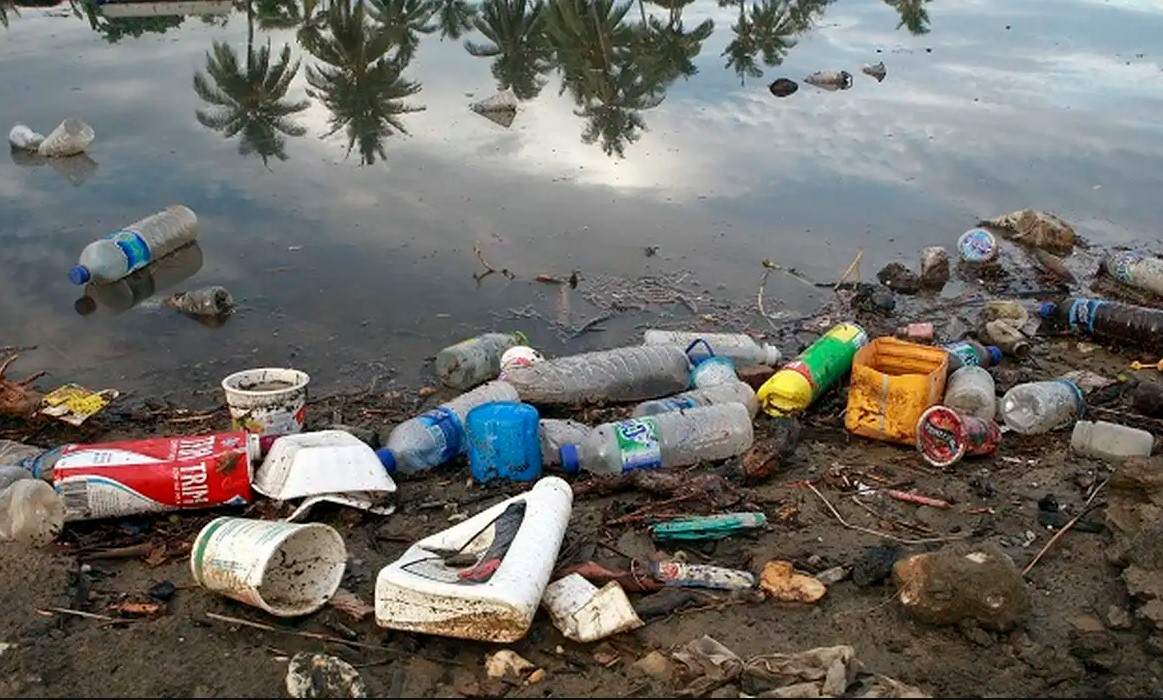

Global use of plastics could nearly triple in the coming decades, rising from 400 million tons today to more than 1.2 billion tons between 2050 and 2060 (photo: Martine Perret/UN Photo)
For Elena Fernandez de la Iglesia, from the Faculty of Law at the Complutense University of Madrid, taxing producers and consumers according to the amount and type of material used is one of the best tools for promoting the circular economy. The topic was discussed during FAPESP Week Spain.
For Elena Fernandez de la Iglesia, from the Faculty of Law at the Complutense University of Madrid, taxing producers and consumers according to the amount and type of material used is one of the best tools for promoting the circular economy. The topic was discussed during FAPESP Week Spain.

Global use of plastics could nearly triple in the coming decades, rising from 400 million tons today to more than 1.2 billion tons between 2050 and 2060 (photo: Martine Perret/UN Photo)
By Elton Alisson, from Madrid | Agência FAPESP – Global use of plastics could nearly triple in the coming decades, rising from 400 million tons today to more than 1.2 billion tons between 2050 and 2060. The biggest increases are expected in the emerging economies of sub-Saharan Africa and Asia, but it is estimated that countries in the Organization for Economic Cooperation and Development (OECD) will also double their use of the material over the same period.
“Primary plastics will continue to dominate as a raw material, and although it’s estimated that the use of recycled plastics will grow faster, they’ll represent only 12% of all plastics by 2060. And the amount of plastic waste will also almost triple by 2060, with half going to landfills and less than a fifth being recycled,” predicts Elena Fernandez de la Iglesia, professor at the Faculty of Law of the Complutense University of Madrid (UCM).
According to the researcher, taxation is one of the main economic instruments for environmental protection that can help stimulate plastic recycling and curb inappropriate disposal of the material around the world, thus supporting the transition of industry and society to the circular economy.
“Taxes seek to encourage changes in the behavior of producers and consumers towards less waste generation, by taxing them according to the quantity and type of material,” said la Iglesia in a presentation during FAPESP Week Spain, which took place between November 27th and 28th at the UCM campus in Madrid.
“The current European strategy for the use of plastics in a circular economy establishes the use of economic instruments to prioritize prevention, reuse and recycling,” she said.
Some of the advances in the implementation of environmental taxes in Spain in recent years related to the circularity of plastics have been the creation of a tax on landfilling, incineration and co-incineration of waste, which came into force at the beginning of 2023. But the country, like others in the European bloc, faces major challenges in this area, said Carmen Abril Barrie, a professor at the UCM.
“Spain has failed to recycle plastic bottles, for example. According to a newspaper report three days ago, only 40% of plastic bottles are recycled in Spain. For some countries that might be a good figure, but unfortunately for the European Union, it’s not enough. The target is to recycle 70% of plastic,” said Barrie.
In Brazil, only 4% of the country’s 80 million tons of waste produced annually is recycled, said Janaína Mascarenhas Hornos da Costa, a professor at the São Carlos Engineering School of the University of São Paulo (EESC-USP).
“The figure is well below the global average of 9%. The country loses US$ 2.5 billion every year due to the lack of adequate recycling,” she said.
In order to increase recycling in the country, it is necessary to work within this ecosystem on the issue of digital transformation, the researcher noted.
“It’s not possible to imagine that the country will reach 40% recycling, for example, if it doesn’t take advantage of the digital transformation already adopted in industries,” Costa told Agência FAPESP.
More information about FAPESP Week Spain can be found at: www.fapesp.br/week/2024/spain.
Republish
The Agency FAPESP licenses news via Creative Commons (CC-BY-NC-ND) so that they can be republished free of charge and in a simple way by other digital or printed vehicles. Agência FAPESP must be credited as the source of the content being republished and the name of the reporter (if any) must be attributed. Using the HMTL button below allows compliance with these rules, detailed in Digital Republishing Policy FAPESP.





